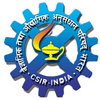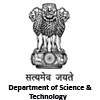|
|
 |
 |
 |
 |
||
| CSIR-CIMAP Research Centre Pantnagar | |
|
The CIMAP Research Centre, Pantnagar was set up in February 1963 in the name of Northern Zonal Centre of Central Indian Medicinal Plants Organization (CIMPO) at Haldwani with a farm of 50 acres in Tarai region of Nainital and extended to 286 acres by 1967. In 1979, it was shifted to the present location after construction of office buildings. The Research center lies at a Latitude of 290 N, Longitude of 79.380 E and an altitude of 243.84 MSL. It experiences subtropical and humid climate. The minimum between 20 -50 C. The average rainfall is 1350 mm. The major strength of the Research Center, Pantnagar is large fertile land with adequate water resource.The Center also experiences almost all climated starting from summer, winter, monsoon and even the aromatic crops suitable to various climates can be purposes. The center is well connected by train, roads, air and easily approachable from the nearby Purara Research Farm, Lucknow and also from Delhi. The G.B. Pant University of Agriculture and Technology is very near to the center to make any collaborative research work possible and for making the technologies reachable to the farming communities through University’s KVKs. The center is connected with good communication facilities like Fax, Internet and telephones. The established infrastructures like distillation units, boiler, agricultural implements etc. are another advantage to run the center effectively. Genetic improvement of MAPs especially mints, aromatic grasses, satawar, clarysage, silybum rose, kalmegh etc., agrotechnological experiments; large scvale production of Quality Planting Materials ( QPMs); essential oil analysis; germplasm collection and introduction are the major activities of the center. Besides these, promotion of MAPs cultivation in Uttarakhand, adjoining areas of Uttar Pradesh, Bihar and other parts of country through training and demonstration programme; development of post harvest technologies of MAPs.; establishing Biovillage programmes for various crops and transfer of improved agro-technologies of MAP to the farmers and industries are some other activities of the center. (i) Mint revolution: In 1963, 26 kg. stolon of Mentha arvensis was raised from 0.2 ha of the land. The area was extended to 8ha. by 1964. Material worth Rs. 45,000/- was sold to M/s Richardson Hindustan, Bilaspur, Rampur(Uttar Pradesh) Besides producing 220 kg. With this start, oil of Japanese mint to the tune of 150 tons is being produced in Tarai since 1972. An estimated production of about 15 tons of Mentha oil (Worth about Rs. 13.0 lakhs ) was achieved during 1972. The Kosi veriety developed the Center increases mint cultivation from 15 hectares in seventies to 1, 50,000 hectares in the beginning of 21st century in the country. (ii) Ergot production Based on the preliminary studies, it was found that Ergot of rye can be grown successfully with superior quality of ergot alkaloid (ergotamine) under Tarai climate. The commercial strain of ergot (Claviceps purpurea(Fr.) Tul.) was tried during Rabi season. From 5.0 acre areas, 507 kg ergot was produced in 1977-8-78. (iii) Palmarosa (Cymbopogon martini var. motia) Vaishnavi A physiologically high yielding self pollinated genotype/variant ‘Vaishnavi’ is an outcome of extensive selections of the familiar variety PRC-1 with distinct morphology. The variety ‘Vaishnavi’ is a good source of geraniol (78-82 %) and geranyl acetate (8-12%) which are widely used in perfumery industries. Java citronella (Cymbopogon winterianus) Jal Pallavi Water logging conditions depleted the citronella field populations and adersely affect the crop yield. A water logging tolerant genotype with high yield potential was developed through clonal selection. Lemongrass(Cymbopogon flexuosus) Chirharit The first resistant, stay-green habit with high yield lemongrass variety ‘Chirharit’ has been developed through extensive selection from OPSP of va. ‘Cauvery’. The concentration of its major oil constituent: citral is about 81%. Damask Rose (Rosa damascene) Ranishiba It is a super genotype of damask rose (Rosa damascene var. bifera) developed through a comprehensive scheme of half-sib progeny selection in the damask rose race grown in Kannuaj areas of Uttar Pradesh. The major quality parameters are: 0.08% oil content; 30-35% geraniol, 5-7% geranyl acetate, high flower yield even in off season. Menthol mint (Mentha arvensis) Kosi The variety has originated from the familiar variety Kalka as one of its half-sib progenies. The variety is unique in its robust growth habit and higher biomass. Besides having the distinct morpho-physiological plant traits, this variety has large globular plant canopy, iso-menthone (17-19%) content and early maturing period (90-100 days). Damroo Development of high essential oil yielding variety ‘Damroo’ from open pollinated seed progenies of the familiar variety ‘Shivalik’, having supremacy for high seed yield, better tolerance to leaf spot, rust and powdery and isomenthone (12-17%) content are the characteristic features of this variety. Neerkalka It is an inter specific hybrid variety of Mentha arvensis, the main source of natural menthol and M. spicata, the main source of natural corvine. The natural cross compatibility occurs between the species although manual emasculation and pollination are impeded due to extremely small size of the florets. Satavar (Asparagus racemosus)CIM-Shakti Asparagus racemosus Willd., a woody branced spiny climbing shrub with stout rootstock bearing numerious long fusiform tuberous roots is commonly known as satavar. Variety CIM-Shakti consistently shows high saponin content in all field evalution yield trials. The average dry root yield is about 148q/ha and saponin content is 21%. The new variety is characteristically having numerous fingers and profuse seed formation. |
|
| SCIENTIST-IN-CHARGE | ||
|
|
Dr R C padalia
E-mail:This email address is being protected from spambots. You need JavaScript enabled to view it.
Phone: 91-5963-250129
|
|
| CONTACT US | ||
|
|
Scientist-in-Charge
CIMAP Research Centre
Purara,Bageshwer,PO Gagarigole Bageshwer-263688
Uttrakhand India
Email: This email address is being protected from spambots. You need JavaScript enabled to view it.
;This email address is being protected from spambots. You need JavaScript enabled to view it.
Phone: +91-5963-250129
|
Director
Central Institute of Medicinal and Aromatic Plants
P.O. – CIMAP, Near Kukrail Picnic Spot
Lucknow – 226 015 India
E-mail: This email address is being protected from spambots. You need JavaScript enabled to view it.
Phone: +91-522-2718505
|
|
|
||
| History of CSIR-CIMAP | |
|
Central Institute of Medicinal and Aromatic Plants, popularly known as CIMAP, is a frontier plant research laboratory of Council of Scientific and Industrial Research (CSIR). Established originally as Central Indian Medicinal Plants Organisation (CIMPO) in 1959, CIMAP is steering multidisciplinary high quality research in biological and chemical sciences and extending technologies and services to the farmers and entrepreneurs of medicinal and aromatic plants (MAPs) with its research headquarter at Lucknow and Research Centres at Bangalore, Hyderabad, Pantnagar and Purara. CIMAP Research Centres are aptly situated in different agro-climatic zones of the country to facilitate multi-location field trials and research. A little more than 50 years since its inception, today, CIMAP has extended its wings overseas with scientific collaboration agreements with Malaysia. CSIR-CIMAP has signed two agreements to promote bilateral cooperation between India and Malaysia in research, development and commercialization of MAP related technologies. CIMAP’s contribution to the Indian economy through its MAPs research is well known. Mint varieties released and agro-packages developed and popularised by CIMAP has made India the global leader in mints and related industrial products. CIMAP has released several varieties of the MAPs, their complete agro-technology and post harvest packages which have revolutionised MAPs cultivation and business scenario of the country.Recognizing the urgent need for stimulating research on medicinal plants in the country and for coordinating and consolidating some work already done by organizations like the Indian council of Agricultural Research, Indian Council of Medical Research, Tropical School of Medicine of Culcutta and various States Governments and Individual workers, the Council Scientific and Industrial Research approved in 1957 the establishment of the Central Indian Medicinal Plants Organization (CIMPO) with the following objectives. ‘To co-ordinate and channelise along fruitful directions the present activities in the field of medicinal plants carried out by the various agencies, State Governments etc., to develop the already existing medicinal plants resources of India, to bring under cultivation some of the important medicinal plants in great demand and also to introduce the cultivation into the country of exotic medicinal plants of high yielding active principal content’ It was further decide that as the work on all aspects of cultivation of aromatics plants was identical with all the cultivation of medicinal plants, the aromatic plants should also be covered within the scope of CIMPO. The Essential Oils Research Committee functioning under the Council of Scientific & Industrial Research was then dissolve and its activities taken over by CIMPO. The Organization started functioning with effect from 26 March 1959 with the appointment of late Shri P.M. Nabar its first Officer Incharge. Role of the Lab and Positioning : CIMAP is a unique lab of its kind in the entire globe, way ahead of its time even at the time of its establishment. As a ripple effect of CIMAP’s success and contribution, other research establishments have now started seriously considering MAPs in their portfolio. While conserving the plant genetic resources systematically and undertaking world class research work in plant science, CIMAP is equipping the nation with high-tech agriculture linked to industrial processing of MAPs. CIMAP is equipped with state-of-the-art multidisciplinary laboratories, ultra-modern instrumentation facilities and scientific expertise in agriculture, genetics and plant breeding, molecular taxonomy, molecular and structural biology, plant biotechnology, biochemistry, microbiology, bio energy and chemical sciences, apart from development of herbal products. CIMAP, Lucknow houses the National Gene Bank of medicinal and aromatic plants, in addition to seed gene bank, tissue and DNA bank. Further, Field Gene Bank of different varieties of MAPs is maintained at CIMAP Lucknow and its four research centres situated across the country. From CIMAP Lab to Market CIMAP has been documenting and creating scientific knowledgebase relevant to MAPs for its efficient utilisation, facilitating the lab to market journey of medicinal and aromatic crops (MACs) through several important publications. Farm bulletins on various economically important MACs (e.g. Mint, Lemongrass, Palmarosa, Geranium, Withania, Artemisia, etc.) in Hindi, English and regional languages, Training manuals - ‘Aus Saathi’ and ‘MAPs Companion’, Crop calendars, a composite research journal ‘Journal of Medicinal and Aromatic Plants Sciences (JMAPS)’ covering research papers, and trade related information on MACs are published by CIMAP. Major impact making patents which resulted in major marketable technologies from CIMAP are Artemisia cultivation method (US 6,39,376), CIM-Arogya herb processing for artemisinin (IN 176679), development of arteether (IN 173947), artemisinin extraction process (US 5,955,08), CIM-Arogya - genetically tagged high yielding variety of Artemisia annua and its cultivation technology (US 6,393,763), cultivar Himalaya and Kosi of menthol mint (PP 10935, PP 12426) and method of producing mint plant Kushal (US 6,420, 174). Sharing of Expertise and Knowledge,Technical Consultancy & setting up of National Facilities CIMAP Gene Bank established in 1993 as a follow up action taken in the summit of G-15 countries held at Caracas is one of the three National Gene Banks of the country that focuses on the conservation of MAPs of India in the form of seed, field, tissue and DNA banks. CIMAP has been designated by PPV&FRA (Protection of Plant Varieties and Farmer’s Rights Authority) as Nodal laboratory for developing National Test Guidelines for plant varieties protection and DUS (distinctiveness, uniformity and stability) testing of medicinal and aromatic plants and seed species. CIMAP Bio-village Mission is currently expanding the industrial cultivation of appropriate medicinal and aromatic plants nationwide from North to South India, and in Uttar Pradesh, from Lucknow in all directions. National Biodiversity Authority of India has recognized CIMAP as a Designated National Repository (DNR) under the Biological Diversity Act, 2002, to keep in safe custody, specimens of different categories of biological material. National and International Linkages CIMAP has been recognized as Focal Point for South East Asia by International Centre for Science and High Technology- United Nations Industrial Development Organization (ICS-UNIDO). CIMAP has scientific collaboration with Bulgarian Academy of Science for Rose oil technology. At National level CIMAP has established alliances with Indian Institute of Agriculture Research (IIAR), Gandhinagar (Gujarat) and North East Institute of Science & Technology (NEIST), Jorhat (Assam) for multiplier effect for its endeavour in western and North East Region, respectively. Internationally too, CSIR-CIMAP, Special Innovation Unit (UNIK) Corp, Malaysia, Office of the Prime Minister of Malaysia and Monash University, Sunaway Campus, Malaysia have entered into scientific agreement. The agreements envisage establishment of a Joint Innovation Accelerator Centre with expertise of CSIR-CIMAP in Malaysia to carry out research on areas of mutual interest such as green technologies, medicinal and aromatic plants and other innovative technologies. Both CSIR-CIMAP and UNIK will also explore and develop the use of herbs, plants, flowers and fruits for medicinal and aromatic purposes in Malaysia by way of improving extraction techniques, modern processes and herbal products. Academics alliances-mentoring your minds To share a common desire to explore, extend and strengthen the functional relationship between Universities and National Scientific Institutes/ Laboratories of CSIR, CIMAP has signed MoUs with several universities including JNU, GB Pant University of Agriculture & Technology (GBPUAT), Pantnagar, Chandra Shekhar Azad University of Agriculture & Technology (CSAUAT), Kanpur, Banaras Hindu University (BHU), Universities of Allahabad and Lucknow among others. Towards the mission of bringing scientific excellence through University-Research Institution joint efforts, CIMAP has been recognized by Jawaharlal Nehru University (JNU), New Delhi, as its centre for research and academic activities in the field of Life Sciences. Other programs conducted regularly towards human resource development include entrepreneurship development programs, CIMAP Winter School (CWS), CIMAP Summer Training (CST), CIMAP Winter Training (CWT) on techniques and tools of biotechnology and bioinformatics, CIMAP Summer School (CSS) on molecular technologies in bio-prospection and biodiversity analysis, CIMAP training on Advanced Instrumentation and Analytical Techniques (AIAT), etc. CIMAP, Lucknow and its Research Centres regularly organizes training programs, entrepreneurship building programs, need based industrial trainings and awareness programs all over the country. |
|